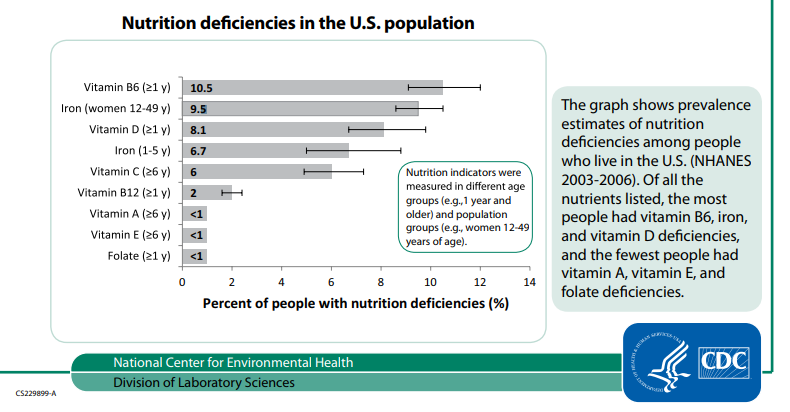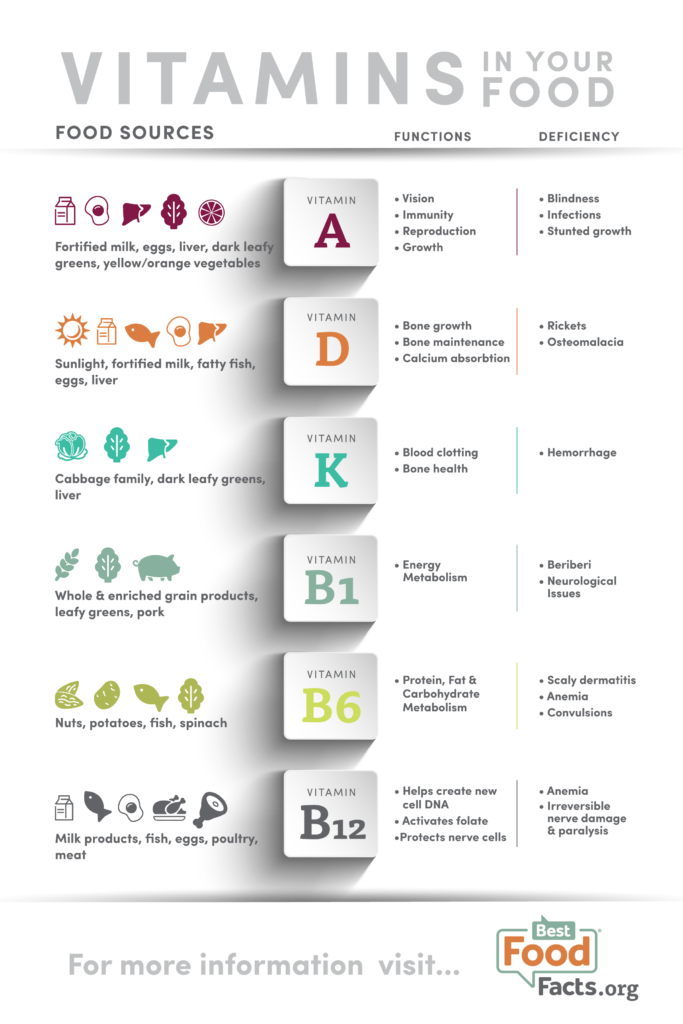
Vitamins: Are You Getting Enough?
Despite being told by our doctors, family and friends that we should get our vitamins, it’s not until we’re not getting enough that we notice the true impact they make. There is such a wide variety of vitamins available, so it is easy to lose track of what we should be consuming. To help address these concerns, Dr. Roger Clemens of the University of Southern California weighed in on how common vitamin deficiencies are, how they impact us and the health issues associated with vitamin deficiency.
Are there different kinds of vitamins? Do they impact us differently?
Dr. Clemens: “There are water-soluble and fat-soluble vitamins. The fat-soluble vitamins are A, D, E and K. The water-soluble vitamins encompass the classic ‘B’ vitamins, vitamin C and a few others.”
What is the most common vitamin deficiency?
Dr. Clemens: “The number one vitamin deficiency, on a global basis, is vitamin A, according to WHO. Frank vitamin A deficiency is presented by night blindness, compromised skin, increased infections and elevated mortality. Data from the NHANES suggest nearly 70% of the US population does not meet the vitamin A requirement established by the Institute of Medicine.”
According to Dr. Clemens, food processing technology and food fortification programs help to decrease the vitamin A deficiency to about 30%. He also shared that many people tend to be deficient in vitamin D, the sunshine vitamin. This deficiency leads to a condition called rickets, which is poor bone formation.
However, these vitamin A and vitamin D deficiencies in the United States tend to be rare. With respect to water-soluble vitamins, the NHANES survey data suggest significant deficiencies are unusual.
So, based on this information, are there any people who are more at risk for certain vitamin deficiencies?
Dr. Clemens: “Many at-risk populations, such as the elderly, may present nutrient insufficiencies of vitamins in the ‘B’ category, particularly vitamin B6 (needed for protein metabolism), vitamin B1 (needed for energy generation), vitamin B12 (needed for many processes, including blood cell formation) and choline (need for nerve cells).”
To help explain the commonality of vitamin deficiency, we found this graph from the Center for Disease Control.
Are there any foods that I should be eating to help prevent vitamin deficiencies?
Dr. Clemens: “Key to minimize nutrient insufficiencies is to follow a balanced, diverse dietary pattern. Those who avoid dairy products are likely to present insufficient vitamin A, vitamin D, and many other nutrients. Those who avoid grains are likely to present an array of gastrointestinal challenges.”
If you’re wondering what foods you should eat to help maintain vitamin levels, good foods to eat include:
- Mushrooms
- Dairy products such as milk, cheese and yogurt
- Carrots
- Sweet potatoes
- Spinach, kale and collard greens
- Apricots
- Grain breads and cereals
- Meat, fish, poultry and eggs
- Nuts and legumes
What are other ways, besides food, to get these vitamins?
Dr. Clemens: “There are several life-stages where nutrient insufficiencies are prevalent. The primary stages include infancy, adolescence, pregnancy & lactation and elderly. Each of these is unique with respect to needs and how vitamins are absorbed and utilized. For example, prior to pregnancy and throughout pregnancy, there is an increased need for folic acid. In fact, during each stage of pregnancy, the first two months are particularly critical for nutrient adequacy. Thus, many health professionals recommend the consumption of prenatal dietary supplements that are designed specifically for pregnant women.”
Are there health issues associated with vitamin deficiency?
Dr. Clemens: “The number of health-related issues with vitamin deficiency (and even insufficiency) is vast. For example, one of the initial injections administered to newborn infants is a form of vitamin K. Vitamin K is essential for maintaining blood clotting functions. Other health-related issues are noted above. Many organizations have compiled a simple chart of vitamins and their deficiency symptoms.
Each vitamin has an important role in keeping our bodies healthy. We are more susceptible to deficiencies at certain stages of life. Eating a diverse, balanced diet helps get all the vitamins you need.




























